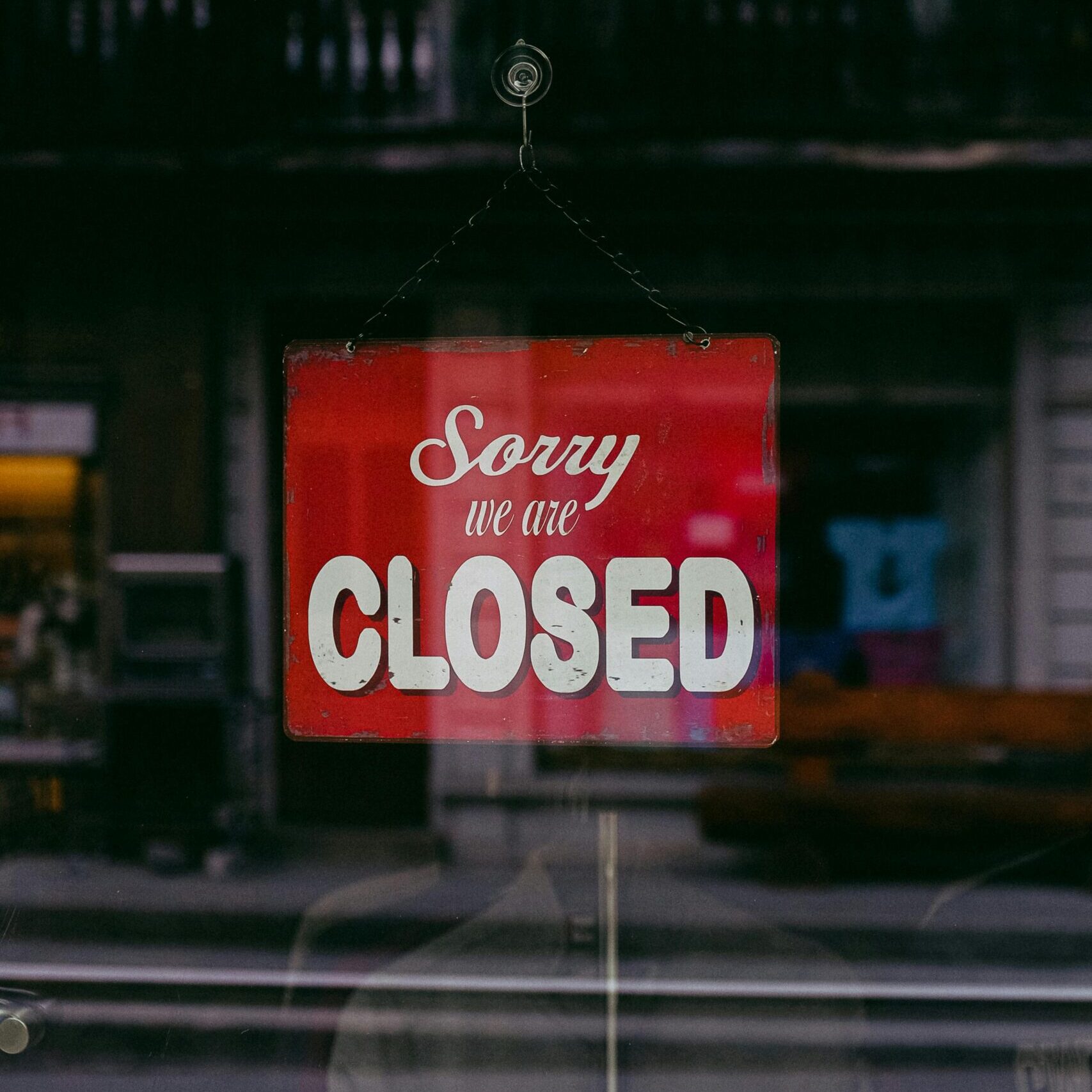
Not Off the Hook…Trouble in Paradise for Puerto Rico Insurers
February 21, 2019
Recent legislative and judicial developments in Puerto Rico may very well have revived thousands of claims that insurers believed to be time-barred, per the terms of the Suit Against Us provisions of their Policies. Until the February 14, 2019, ruling issued by a San Juan court, residential property damage claims that had not escalated to suit within a year of the date of loss, had been considered time-barred. It would seem that it may not be the case anymore, and insurers should be prepared for a potential flurry of new litigation, even involving prior Hurricane Irma and Maria claims.
Puerto Rico had not been impacted by a major storm since Hurricane Georges in 1998, and before that, Hugo in ‘89. In the wake of Irma and Maria, the tropical island’s infrastructure was devastated, and the insurance industry shaken. As of July 31, 2018, an estimated 276, 313 new insurance claims had been filed, some 179,970 of which were for residential property damage.1
Two days before the one-year anniversary of Maria’s landfall, on September 18, 2018 –that is on the eve of the expiration of the one-year Suit Against Us timeframe — Michael Pierluisi, as Secretary of the Department of Consumer Affairs (DACO, per its Spanish acronym) sued 16 insurers 2 on behalf of a putative class of insured consumers whose claims had not been resolved as they had expected. The Government also asked that the Class include all future potential claimants, who were at risk of forever losing access to judicial redress, as the one-year statute of repose was about to lapse.3
That same day, the Office of the Commissioner of Insurance (OCS) also sued those same 16 insurers.4 OCS asked the Court to interpret the Defendants’ Suit Against Us Policy Provisions. At issue was whether the one-year period within which an insured homeowner had to file suit, could be tolled – that is, if the Suit Against Us provision provided a statute of limitations, or if, as most insurers argued, the one-year period operated as a statute of repose5, which could not be tolled. The Court consolidated both litigations. The Suit Against Us provision at issue reads:
Suit Against Us. No action can be brought unless the policy provisions have been complied with and the action is started within one year after the date of loss.
On February 14, 2019, Insurers serving the Puerto Rican market, who had thought that thousands of Hurricane Irma and Maria claims were time-barred, were in for a surprise — and not a sweet one.
That day, the Trial Court in San Juan entered Final Judgment in the highly publicized and much-litigated case of Michael Pierluisi, as Secretary of the Department of Consumer Affairs et als. v. MAPFRE PRAICO Ins. Co et als., SJ2018CV07570. The Complaint alleged breach of contract, failure to pay, undue delay, damages, and pain and mental anguish. It was part of the Puerto Rican Government’s two-fold strategy to address the insurance market’s response to an unprecedented number of claims.6
In the backdrop, Puerto Rican families were still not back into their homes and the resolution of claims had been slower than anticipated. The judiciary struggled to handle the litigation overload. Blue FEMA tarps were still the only thing keeping tropical rainwater out of an astonishing number of homes. The Insurance Company Association, ACODESE (per its Spanish acronym) reported that, within the year, its members had received some 240,999 claims, of which 156,659 were closed with payment – for an overall payout reaching $3,328,390,065. Some other 75,213 claims had not been paid.7
The Legislature steps in and resolves the issue of time-bar while the parties litigate
During the course of the DACO/OCS litigation, on November 27, 2018, the Puerto Rican Legislature put the issue to rest, by enacting Law 242—2018. With the clear purpose of protecting the interests of insured consumers and addressing the perceived deficiencies in the existing statutes, lawmakers amended Article 11.190 of the Insurance Code.8 As of that day, the one-year time frame to sue would officially operate as a statute of limitations, construed pursuant to Article 1873 of the Puerto Rico Civil Code.9 Insureds would no longer have to file suit to preserve their unresolved claims. From now on, the yearly limitation period could be tolled through informal, extrajudicial notice, such as making a claim with the insurer or the agent. And any contractual clause providing otherwise would be null and void. Most importantly, the lawmakers also gave retroactive effect to the amendment, making it applicable to Maria and Irma Claims.
Before the enactment of this new law, the insurers’ general stance had been that their Suit Against Us provision fatally limited the period within which to sue to one year, operating as a statute of repose. Thus, Hurricane Irma and Maria first-party, residential property claims that had not become lawsuits within a year of the date of loss, would have been considered time-barred.
The Puerto Rico Civil Code dedicates Chapter 409 to the Limitations of Actions.10 Actions for breach of contract that do not otherwise have a specific codified time frame (i.e. through other code articles or special statute) usually are subject to a 15—year limitations term, per Article 1864.11 The 15—year period runs from the date the cause of action becomes available12, can easily be tolled and may be shortened or extended, by agreement of the parties, as long as the variation does not run afoul the law, morals, or public policy.13 Thus, the stance adopted by the insurers allowed them to avoid exposure to otherwise lengthy limitations periods and repeated tolling that would have extended the period within which to sue in a potentially unmanageable manner.
The San Juan Trial Court entered Final Judgment and dismissed the consolidated DACO/OCS case, with prejudice, on mootness grounds. By virtue of the enactment of Law 242—2018, there no longer was a justiciable case and controversy to rule upon. Any doubts as to whether the one-year period was a limitation or repose timeframe had already been resolved by the Legislature, and the Court declared it had no authority to adjudicate.
Citing to Puerto Rico Supreme Court constitutional precedent14 and Spanish interpretive Doctrine, the Court found that the lawmakers had specifically intended for the amendment to apply retroactively, to all Irma and Maria claims. In dicta, the Court seemed to adopt the notion – in a blow to insurers – that, in the aftermath of such an atmospheric catastrophe, the balance of equities between public interest and the impairment of private, acquired rights, justified the ex-post-facto application of the amendment. The Court also distinguished between the expectations a party has regarding its rights, and whether those expectations truly constitute an acquired right. The mere expectation of entitlement to a right would be of lesser weight than a fully acquired right when balancing it against a substantial public interest. Albeit discretely, the Court appeared to suggest that, in an ex-post-facto context, the insurers’ expected rights would yield to the public interest in rebuilding the island and repairing its citizens’ homes.
This First Instance Judgment is now subject to post-judgment motions, and appeal. The Trial Court set the basis for Certification of the issue to the Puerto Rico Supreme Court as one of high public interest. To note, on September 18, 2018, the same day DACO and OCS sued; the Puerto Rico Supreme Court in Guardiola Rodriguez et als. v. Cooperativa de Seguros Multiples CT—2018—09, had declined to hear a Petition for An Extraordinary Writ, for Intrajurisdictional Certification 15 and seeking an Order in Aid of the Court’s Appellate Jurisdiction.16 In that case, two homeowners had requested a declaration that the Suit Against Us provision was null and void, or in the alternative, that the Court resolve the ambiguity in the provision.
In a 5—4 decision, the split Court denied the writ, for lack of a justiciable controversy, declining to issue an advisory opinion on this issue of the first impression. While, at the time, the Court refused to exercise jurisdiction, the dissenting vote, with the special written opinion, adopted by four Justices who would have issued the writ, seems to have paved the way for the 16 DACO/OCS defendants to raise the issue. The many constitutional issues at play, the stability of contracts and the retroactive impact of the law are cause for concern. It should also be noted that Law 242-2018 did not stop there. An appraisal would become available, the scope of appraisal and role of the appraiser were defined, and new insurance dispute courts were created.
The potential repercussions on insurers doing business in Puerto Rico are daunting. No longer protected by the Suit Against Us provision as a contractual, once iron-clad one-year bar to suit, they now should brace for a wave of new litigation. The local insurance industry has sustained many changes in the wake of the deadliest – and most expensive — hurricane to hit the Island. With at least one well known Florida Plaintiff firm setting up shop in Puerto Rico, vocally and very publicly arguing for the insureds, Plaintiff-driven litigators have been circling Puerto Rico’s sunny, blue skies.
While the final outcome of this Judgment is still uncertain, there most certainly is trouble in paradise.
For any further questions, please contact Thais Passerieu.
1 See Michael Pierluisi, as Secretary of the Department of Consumer Affairs et als. v. MAPFRE PRAICO Ins. Co et als., SJ2018CV07570, at para. 38, p. 13..
2 The original defendants were Mapfre Insurance Company; Universal Insurance Company; Multinational Insurance Company; Triple-S Propiedad, Inc.; One Alliance Insurance Corporation; Antilles Insurance Company; United Surety and Indemnity Company; QBE Seguros; Real Legacy Assurance Company, Inc.; Integrand Assurance Company; Chubb Insurance Company of Puerto Rico; Caribbean American Property Insurance Company; MAPFRE Pan American Insurance Company; AIG Insurance Company- Puerto Rico; and Cooperativa de Seguros Múltiples de Puerto Rico.
3 See Michael Pierluisi, as Secretary of the Department of Consumer Affairs et als. v. MAPFRE PRAICO Ins. Co et als., SJ2018CV07570, before the Court of First Instance, San Juan Judicial Region, Higher Court.
4 Case SJ2018CV0016, before the Court of First Instance, San Juan Judicial Region, Higher Court.
5 Statute of Limitations is loosely used as an equivalent for “término de prescricpción” and Statute of Repose, for “término de caducidad”, while the legal and substantive nuances between the Civil Law concepts and their Common Law counterparts.
6 See, e.g., AP News: Puerto Rico Sues Insurance Companies Amid Unresolved Claims. First published September 18, 2018. https://apnews.com/aca22421b73e4ad8b0bbcd9c78631668. (Last visited February 19, 2019.)
7 See Oscar J. Serrano, for Notice: Supremo rechaza aclarar cuánto tiempo es que hay para reclamaciones a seguros, first published September 18, 2018. https://www.noticel.com/ahora/tribunales/supremo-rechaza-aclarar-cuanto-tiempo-es-que-hay-para-reclamaciones-a-seguros/796772963 (last visited February 19, 2019.)
8 26 P.R. Laws Ann. § 1190. See also, Statement of Motives of Law 242—2018 of November 27, 2018, Sen. Bill 1054.
9 Civ. Cod. P.R., Art. 1873, 31 P.R. Laws Ann. § 5303.
10 See P.R. Civ. Cod.. 5261–5304.
11 See Art. 1864 P.R. Civ. Cod., 31 P.R. Laws Ann. §5294.
12 See Art. 1869 .R. Civ. Cod., 31 P.R. Laws Ann. § 5299…
13 See generally R.P. Farnsworth & Co. v. P.R. Urban Renewal & Housing Corp., 289 F. Supp. 666 (P.R. Dist. Ct. 1968). To note, courts have often struggled with translating prescripción and caducidad. The Farnsworth Court referred to “prescription” and “caducity”. We have chosen to refer to, by analogy, statutes of limitations and of repose, despite the many variations between those concepts.
14 See e.g. Consejo de Titulares v. Williams Hospitality, 168 D.P.R. 101, 107 (2006)
15 The Puerto Rico Judiciary Act of 2003 provides that the Supreme Court, ordinarily a court of last resort may exercise jurisdiction by way of exception:
Through a writ of certification, it shall be able to take cognizance of any matter certified to it by the United States Supreme Court, a United States Circuit Court of Appeals, a United States District Court, or the highest court of appeals of any of the states of the United States of America, as well as by the lower courts of the states of the United States of America, when thus requested by any of said courts, if there is any judiciary matter before the requesting court in which matters pertaining to Puerto Rican law are involved that may determine the outcome thereof, and with regard to which, in the opinion of the petitioning court, there are no clear precedents in the jurisprudence of said court. See 4 P.R. Laws Ann. § 24s(f) (emphasis added).
16 The Motion for Temporary Order in Aid of Jurisdiction stems from Rule 28 of the Rules of The Puerto Rico Supreme Court. See 4 P.R.Laws Ann. Ap. XXI-B, R & 28 (2012):
(a) The Court may issue a temporary order in aid of jurisdiction when it is necessary to assert its jurisdiction in a matter pending its consideration. For purposes of this Rule, it shall be understood that the Court, not subject to the ordinary proceedings, will entertain any matter related to the appeal filed or pending, in order to avoid any adverse consequence that may affect its jurisdiction or that may cause substantial harm to a party while resolving the appeal.
. . .
(c) The orders mentioned in this Rule may be issued motu proprio or on motion of a party.



